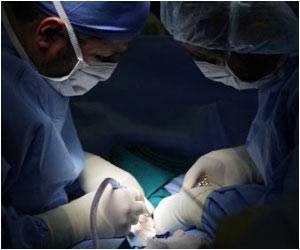A new report by Johns Hopkins scientists suggest that breast cancer cells can lay the groundwork for their own spread throughout the body by coaxing cells within lymphatic vessels to send out tumor-welcoming signals.

In the same report, the researchers say maraviroc, a drug already approved for treating HIV infection, blocked the siren call of CCL5 in tests on animals and cells and prevented tumor spread (metastasis). Additional experiments using a combination of maraviroc and a drug that blocks the VEGF protein suggest that the treatment duo could be an effective way to prevent metastatic disease in human breast cancer patients, according to the researchers.
Because the anti-retroviral drug maraviroc has already been approved by the U.S. Food and Drug Administration and has been shown safe for long term, oral use, it could be tested in clinical trials sooner rather than later, says Aleksander Popel, Ph.D., a professor in the Department of Biomedical Engineering at the Johns Hopkins University School of Medicine and member of the Johns Hopkins Kimmel Cancer Center.
"It was surprising to find that LECs can play such an active and significant role in tumor spread." Popel noted. "Conventionally, lymphatic vessels are regarded mainly as passive conduits through which tumor cells spread from the primary tumor and eventually metastasize," he said. "However, we now know that lymphatic vessels enable metastasis, and other studies also show that they play an important role in whether or not immune cells recognize and attack cancer cells."
Popel and colleagues traced the influence of tumor signaling on LECs in cell cultures and in mice. Breast cancer cells were bathed in a nutrient-rich liquid, and, as the cancer cells grew, the investigators detected secretions of a signaling molecule called interleukin-6 (IL6) in the liquid.
Mice that were injected with the IL6-containing liquid experienced a continual rise in CCL5 levels in blood samples for several weeks. Nine of 10 tumor-bearing mice injected with the IL6-laden liquid developed metastases five weeks later. Only two of 10 mice, exposed to the liquid and given a combination of maraviroc and a VEGF-blocking drug, developed metastases.
"However, IL6-secreting tumors could be laying the groundwork for metastasis much earlier than surgery occurs in a patient," he said. "To prevent metastatic sites from taking root, we could administer drugs that block IL6 before surgery."
Source-Eurekalert
 MEDINDIA
MEDINDIA




 Email
Email










